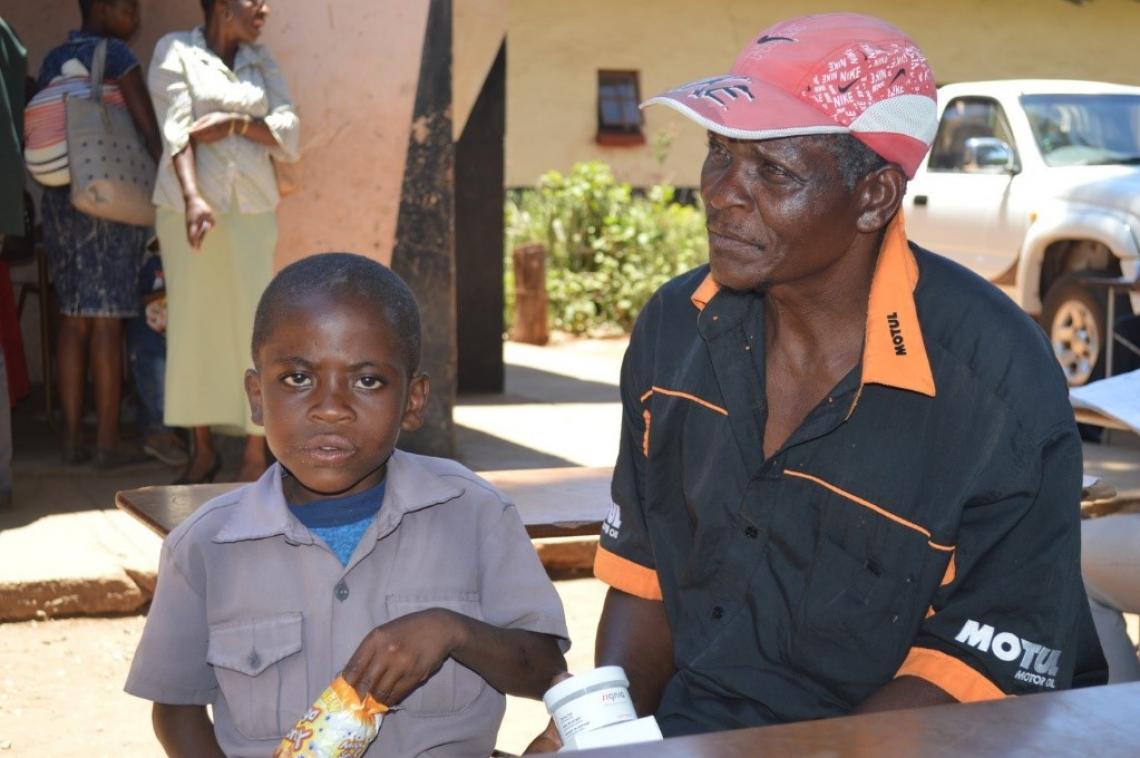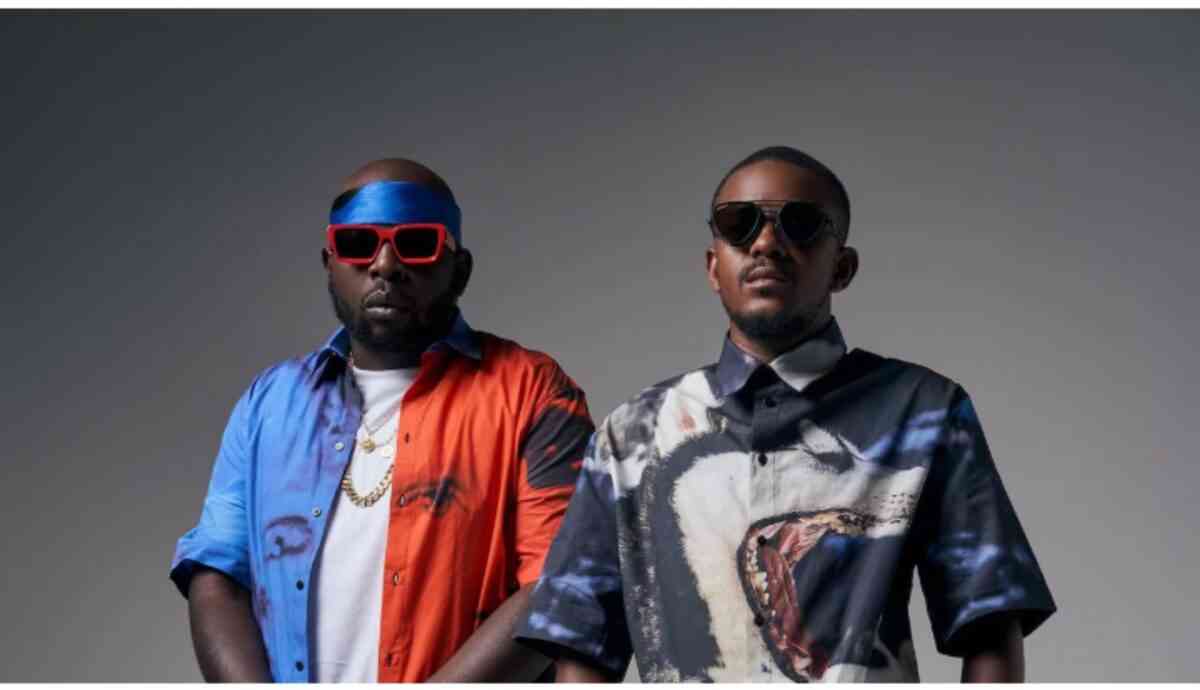
Chegutu, Zimbabwe, — Aclas Farasi, an eight year-old-boy born with a hearing impairment, tilts his head to the right and leans forward to comprehend the words being spoken by his father. He tries to join the conversation, but speaks in a muffled voice. He requires frequent repetition of questions before he speaks about a sad episode that almost claimed his life. In May, while on his way to school, he was hit by a car because he could not hear it coming.
by John Mokwetsi
His right hand still needs physiotherapy four months after being discharged from hospital, where he was admitted for a month after travelling 140km from Sigare village in Chegutu district to a referral hospital in Harare. All health facilities in the district could not assist him because of lack of resources to establish the extent of his injuries.
Aclas, in the company of his father Gilbert and his 19-year-old brother Allen who was also born with a hearing impairment, is about to go through a testing process by an audiologist from the Ministry of Primary and Secondary Education (MoPSE) to ascertain the level of hearing loss and monitor if the ears had an infection that needs treatment first before a hearing aid can be recommended.

An audiologist deals with hearing disorders, including assessment of hearing function and rehabilitation of patients with hearing impairments.
Aclas, who is in grade 3 at Amiva Primary school, explains: “I was going to school with my friend. We crossed the road together. I wanted to go back to pick up my toy (a toy car made of scrap aluminium wire) that I had left on the other side of the road. I did not hear any car approaching and it hit me on my right side. Sometimes I feel pain.”
Aclas takes a moment to play with his frayed shoelaces. His toe protrudes from his left shoe. He is wearing a grey school shirt and a black pair of trousers whose stiches have given way to reveal his skin. The clothes are a revelation of abject poverty, a life without basic necessities.
- Chamisa under fire over US$120K donation
- Mavhunga puts DeMbare into Chibuku quarterfinals
- Pension funds bet on Cabora Bassa oilfields
- Councils defy govt fire tender directive
Keep Reading
His father speaks about the challenges his two children faced growing up in Sigare, a resettlement village situated 10km from Chegutu town: “Sometimes he (Aclas) gets aggressive when he is playing with others. This, I discovered, is because he gets frustrated when he cannot hear what his friends are saying. I have seven children and these two here have hearing problems. I am too poor to take them to a professional for assistance. I survive on subsistence farming. He is excited at the prospect of getting hearing aids, and it is unfortunate that I cannot do more than hope for a good outcome today.”
Aclas declares that he would like to be either a doctor or a teacher when he grows up: “The teacher makes me sit in front in class. Sometimes I do not understand what she is saying.
Ironically, his 19-year-old brother was also involved in an accident when he was hit by a car last year, cycling for 10 km to attend school at St Francis Primary school which has a Hearing Impairment resource unit with teachers who are qualified in special needs education
“Allen was referred to the resource unit when he was 15 and the nearest and only school for those hard of hearing is St Francis Primary, which is 10 km away from our home. Last year he was also involved in accident, but was not hurt much. But the trauma of the incident forced him to drop out of school,” Gilbert said.
Hearing test At St Francis Primary school, a sizeable number of children with hearing impairments, accompanied by their parents, sit outside wooden benches, shielded by mango trees from the searing heat of November. Mercy Mutare, the national audiologist summons Aclas for initial testing.
She will be doing the testing on children in three districts of Mashonaland West province that she recommended last July for further otoscopy (ear examination). She is particularly excited that UNICEF acquired advanced digital hearing aids which are beyond the economic power of most parents.
In 2017, UNICEF Zimbabwe procured 400 digital hearing aids for MoPSE, which are currently being fitted to school-age children. The fitting process is now in the second stage. Since identified children are more than 400, UNICEF ordered an additional 400 hearing aids this year. The devices were procured thanks to the Education Development Fund (EDF II), 2012-2020: a multi-donor pooled funding mechanism supported by UK aid from the UK government and the German Development Bank (KfW).
A twiddling and excited Aclas wears head phones that are attached to an audiometer machine.
Mercy explains: “This machine evaluates hearing loss. The machine delivers pure tones of controlled intensity to one ear and Aclas must respond when he picks a sound by raising up his hand. This helps to determine the level of hearing and informs the programming of the digital hearing aid to specific need.”
The difference between the analogue hearing aids that needed a screw drive to adjust sound was the inaccuracy of the amplification and generally batteries did not last long. The digital aids have computer software that allows an audiologist to programme and set the level of sound specific to individual need.
In addition, analogue hearing aids amplify all sounds equally including background noise. On the other hand, digital hearing aids can amplify or eliminate a specific frequency thereby improving clarity of sound.
On hearing the sounds in his ear, Aclas smiles and enthusiastically raises his hand each time a beep from the machine registers.
Mercy has determined that his right ear can benefit from a hearing aid because his left has been adjudged to have profound hearing loss, and she lets him know. His father, who was monitoring the process, smiles even as he is overwhelmed by emotion he thanks UNICEF and the audiologist.
His father calls Aclas by name from a distance of about three meters and he immediately responds. He is in a state of euphoria as he holds his right ear as if in doubt of the voices that are now amplified.
Aclas tells his father. “I will be able to do my homework easily.” Mercy however, recommends that he joins a resource unit for learners with hearing impairment at St Francis to learn Sign Language and speech training, which takes time to learn.”
“He will one day be able to join the mainstream class, but it is important that he be monitored by trained teachers. The hearing aid will now allow him to tell the sounds around him more clearly and avoid life-threatening dangers like the accident that could have easily claimed his life,” Mercy said.
Teacher speaks out Dorothy Gondo a teacher for children with hearing impairments said: “Being hearing impaired is a disability that is not visible to an inexperienced eye. So when it comes to school placement, a child can be disadvantaged, resulting in delay in their development educationally. The children end up being traumatised.”
Aclas smiles as he walks out of the make-shift testing centre hand in hand with his brother, his father in tow.
Gilbert sums it up: “It is like he is starting a new life. I hope all parents with children who are disabled will get this kind of assistance that my child has got. It is a new hope.”











